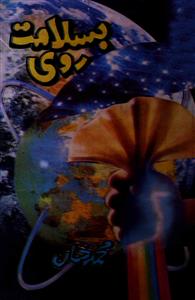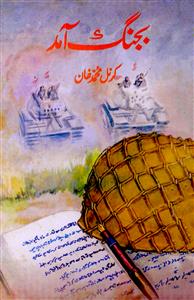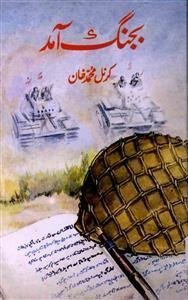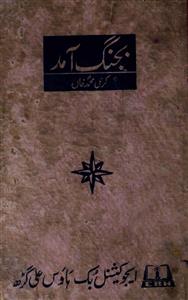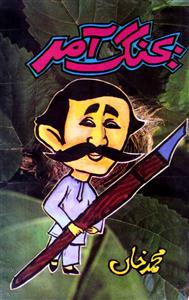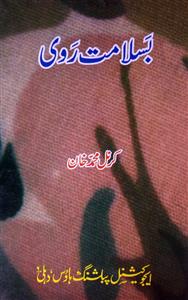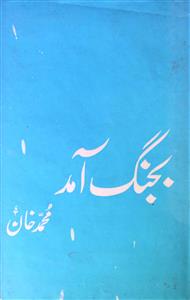 For any query/comment related to this ebook, please contact us at haidar.ali@rekhta.org
For any query/comment related to this ebook, please contact us at haidar.ali@rekhta.org
About The Book
بجنگ آمد کے بعد کرنل محمد خان راتوں رات مشہور ادیب بن گئے۔ اور ایسا صرف ان کے تخلیقی مزاحیہ اسلوب کی بنا پر ہوا۔ ان کی دوسری کتاب "بسلامت روی" سفر فرنگ کی روداد ہے۔ اس کتاب کی کی سب سے اہم بات اس کا مزاحیہ اسلوب ہے۔ مشتاق احمد یوسفی نے کرنل محمد خان کے مزاح کے بارے میں لکھا ہے، "اردو مزاح کو کرنل محمد خان نے ایک نیا بانکپن اور انداز دلبری بخشا ہے، جو صرف انہی کا حصہ ہے۔" اس سفرنامے میں کرنل صاحب کی جگہ جگہ حسینہ عالم سے ملاقاتیں ہوتی ہیں، جس کے بیان کی رنگینی میں جب مزاح کا تڑکہ لگتا ہے، تو قاری کے حظ کو عجیب گدگداہٹ محسوس ہوتی ہے۔ مشتاق احمد یوسفی نے اس سفر نامے کو پرھنے کے بعد مسکراتے ہوئے کہا کہ بھائی سفرنامہ تو خوب لیکن ہر دوسرے صفحے پر حسین میمیں نظر آتی ہیں، یہ اگلے ایڈیشن میں اگر کچھ کم ہوجائیں تو خوب رہے۔ کرنل کہنے لگے، یوسفی صاحب جس میم کو بھی نکالنے کے لئے ہاتھ لگاتا ہوں وہ روتی بہت ہے۔ بسلامت روی میں زبان کا چٹخارہ، بے ساختہ پن اور غضب کی ادبیت ہے۔
About The Author
Colonel Mohammad Khan is one of the few satirists in Urdu literature who has written literature for the sake of life, instead of literature for the sake of literature. He was a renowned satirist and director of the Pakistan Army's Department of Education. In the history of Urdu satire, Colonel Mohammad Khan's work deserves serious attention because his writings are not just a means of passing time but are thought-provoking. He has enriched Urdu literature with the exemplars of meditated satire in the form of "Ba-Jang Amad", "Ba-salamat Ravi", and "Bazm Araiyan". Colonel Mohammad Khan's style is characterized by his creativity, thoughtfulness and eloquence which sets him apart from other satirists. He was a contemporary of Mushtaq Ahmad Yousifi, Zameer Jafari, and Shafiqul Rehman.
Colonel Muhammad Khan was born on August 5, 1910 in the town of Blixar, Chakwal District, Punjab Province in the house of Chaudhry Amir Khan. In 1927, he passed 10th class in First Division and obtained the Roll of Honor. In 1929, he passed FSC Medical Group in first class, followed by, BA, in 1931. After that he got BA Honors degree in Persian. Perhaps this was the time when his aptitude of literature, language, and culture encouraged. He enrolled in Punjab University for MA (Economics) degree which he obtained in 1934. He joined the Army in 1940 and in 1957 became the Director of Army Education and retired in 1969 while holding the same post.
His major works include Ba-jang Amad (1966), Ba-salamat Ravi (1975), Bazm Araiyan (1980) and Bidesi Mizaah. He died on October 23, 1991.
 For any query/comment related to this ebook, please contact us at haidar.ali@rekhta.org
For any query/comment related to this ebook, please contact us at haidar.ali@rekhta.org
